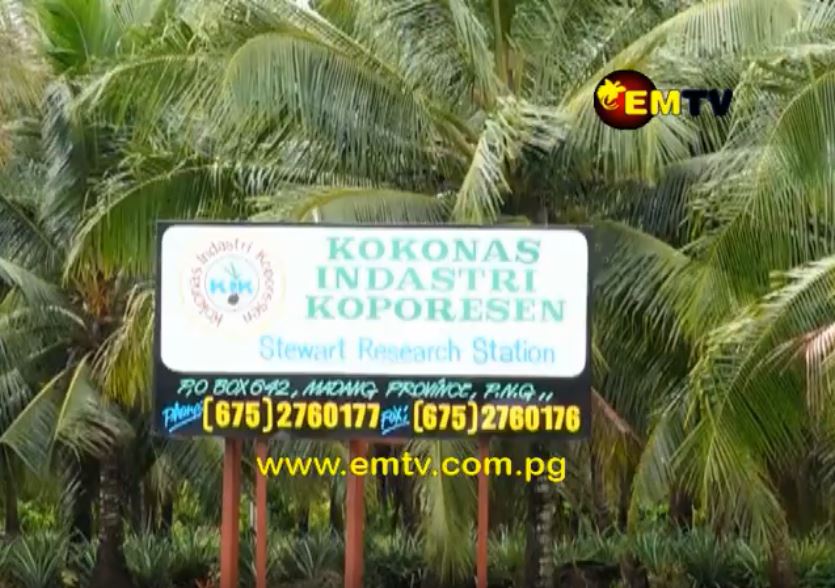By Martha Louis – EMTV News, Madang
Australian Scientists studying the Bogia Coconut syndrome say they need to better understand the Bogia Coconut Syndrome.
A plant disease that has killed hundreds of coconut palms in Madang province.
Professor Geoff Gurr, from the Charles Sturt University, Australia says the coconut is important for Papua New Guinea.
they are working in partnership with the Kokonas Indastri Koporesen and other partners on research program to try and better understand BCS.
Gurr says they are trying to look at key issues like what type of micro-organism causes this syndrome as well as which insects are responsible in transmitting it from plant to plant.
This is the Kokonas Indastri Koporesen field site or station located at Mobdu in Banab in the Sumkar District.
This is where the research work on the Bogia Coconut Syndrome or BCS is carried out to develop biological information on BCS.
Australian Scientist Geoff Gurr, says once they understand the key issues on the micro-organism that cause problems in the palms they can be better prepared to control BCS.
The Bogia Coconut syndrome was reported in 2007 but it has not been treated.
The only thing KIK or farmers can do is to remove any plants that are showing symptoms of BCS and to use clean planting materials and not anything that runs the risk of bringing the disease back.
There is also the risk of the disease getting onto other food crops and would pose a threat to the food security in Papua New Guinea.
The research work is of great importance to PNG as coconuts and bananas are major crops.
KIK in Madang province is the international coconut Genbank of all coconut genetics for the whole Pacific region.
Thus, if the disease spreads it will also threaten the GenBank.


